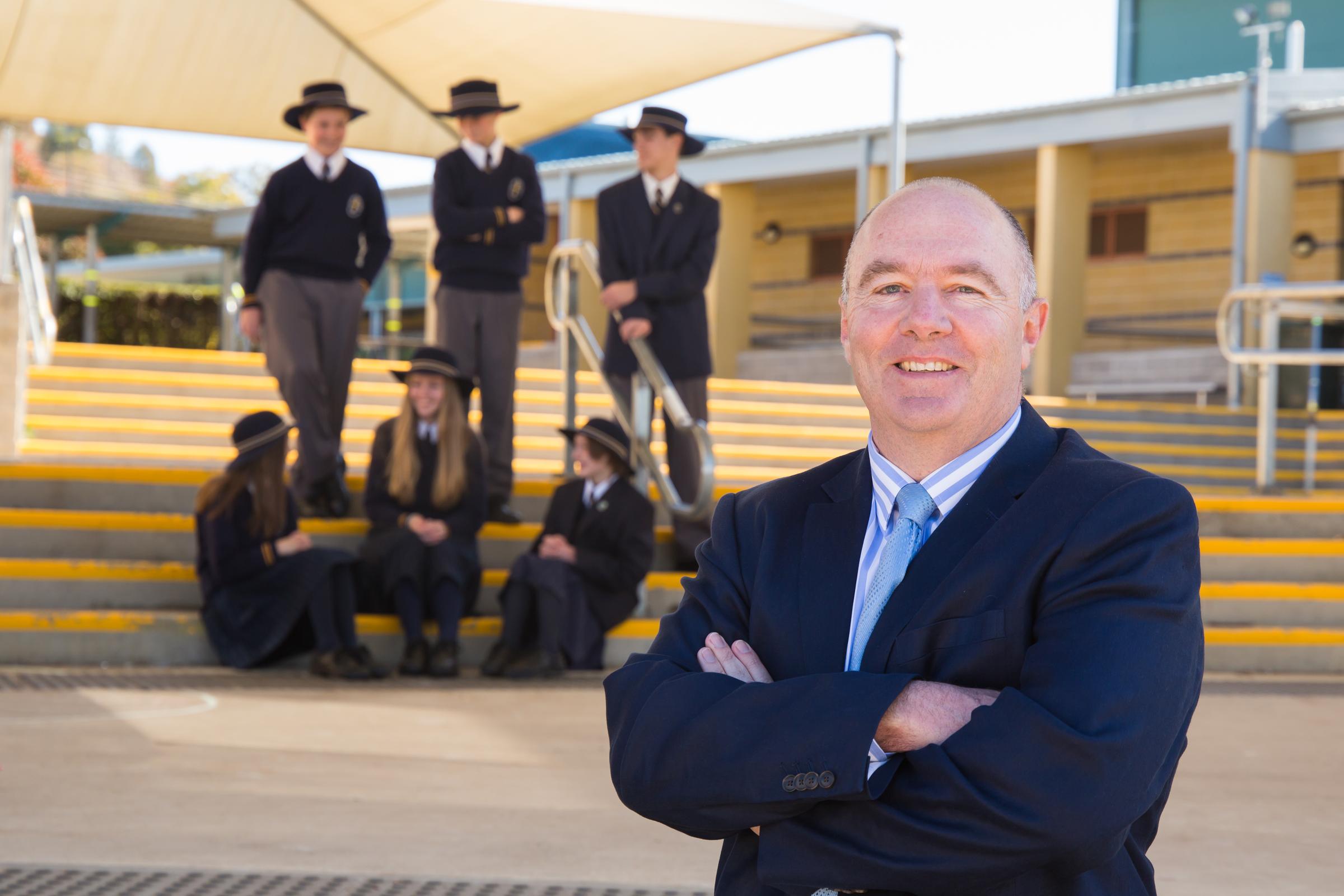Assistant Principal - Mr Larkin

Why Obsession with Happiness Makes Us Miserable
In an essay titled ‘The dark side of the dream’, Leah Kaminsky explores how “society’s obsession with happiness may be making us miserable”. This strikes a chord with me and parallels a concept that I regularly speak to my students about. The challenge for schools is that we are often a counter-cultural institution – that is, much of the ideas and values that we espouse are contradictory to the dominant norms that saturate society, making learning seem an irrelevance.
This conflict provides quite a challenge for students and teachers alike. Young people are often preoccupied with materialistic demands and expectations. Marketing seeks to indoctrinate consumers to believe that through the purchase of a product or service fulfillment can be found. Kaminsky argues:
“Finding meaning and purpose in life isn’t always easy, but it can’t be found in the fleeting pleasures of materialism and consumerism. You might feel excited by the latest smartphone, but within six months it becomes obsolete and can be a source of dissatisfaction.”
Wealth and abundance have taken the physical challenge out of life in most Western cultures. As a consequence, young people (and many old) want everything that they desire and feel unhappy when this does not transpire quickly. School on the other hand requires students to work hard, consistently and in a sustained manner to achieve growth. Growth is often not spectacular or dramatic – it comes slowly, gradually, sometimes unperceptively. Concrete results are often only realized in the long term. This becomes a problem in a society where people expect to be permanently happy and satisfied and they want it now. Kaminsky expresses it beautifully, “We are constantly looking outside of ourselves for the next quick fix, trying to buy our way towards a permanent smile.”
As educators, one of the things we strive to do, to help students see their progress, is to recognize what Gus Gould refers to as the “small victories”. Two seasons ago Gus was asked during a game how he would go about helping Newcastle who at the time were being walloped by Manly. He said that you have to find the small victories – every training session, every game – to build the necessary confidence, skill and mind-set to be successful. Effective teachers try to do this in each lesson and each learning activity. Parents too can help in this process by recognizing and acknowledging the progress of their child – it might be in an idea they expressed, a word or concept that they used, the playing of an instrument, the completion of homework itself or the way they organize themselves for school. Building confidence builds success.
As the year nears an end and students complete and receive feedback on their exams and final assessment tasks (or for Year 11 their first HSC tasks), I urge them to be reflective; to not be discouraged, to be mindful of the long term, to not waste energy comparing their performance with others (not to say that you can’t learn from how others approach a task or work to achieve their goal) but to consider what they did well and what they need to do to improve, that if they have worked as hard as they could then they should be satisfied with such a performance, that future achievement will be founded on the bedrock of work that they have done now. As parents you can support them by reiterating such ideas.
To become an expert in any domain it is said that it takes ten years of deliberate practice. This requires a person to identify their weaknesses and work on them ruthlessly. An educationalist, Marzano, says that expertise exists in “thin slices of behaviour”. His metaphor alludes to the idea that it is the small things that we do that have a cumulative effect – the constant repetition of good habits, the very mindful, deliberate acts we engage in that build toward success. He goes on to argue that to achieve a satisfying life we need to do several things:
- Do something complex and become good at it
- Affect people in a positive way, help others through what you do
- Have a degree of autonomy and are able to express creativity.
Interestingly this aligns with what Kaminsky discusses towards the end of the essay,
“Research shows that genuinely happy people are more inclined to transcend immediate self-gratification and embrace a more value-based life that is focused on others.”
The life of Jesus becomes a powerful example that we hold up to the students, and ourselves, to inspire a life “focused on others”. I must admit to being incredibly impressed and proud of the way so many of our students respond when given an opportunity to help others – I hope that it is an indicator of the fact that these young people are becoming counter-cultural in their values and destined for a life of true fulfillment and not one obsessed with seeking immediate gratification.
A big thank you to all of the parents and guardians who provide such wonderful support to all that we do at the College – it is truly a privilege to serve such a community. I hope everyone has a happy and Holy Christmas, a well-deserved break and return ready to learn and grow and make this world a better place for all.
Mr Mick Larkin - Assistant Principal

